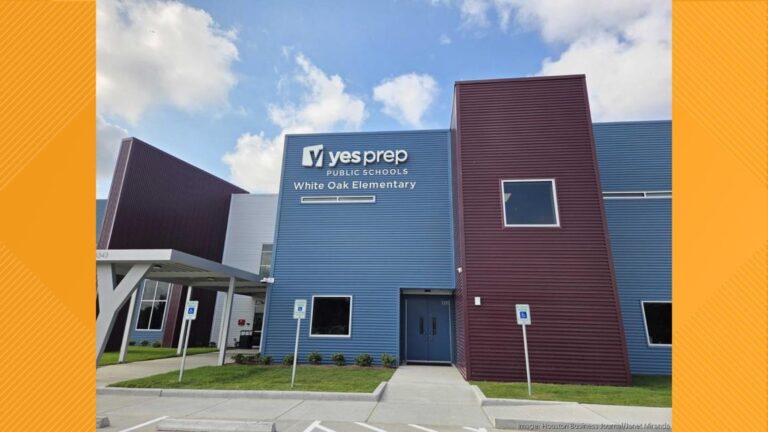Expanding Educational Access: Open-Enrollment Charter Schools Launch New Houston Sites
A leading open-enrollment charter school is broadening its presence in Houston by unveiling plans for two additional campuses. This expansion is designed to offer families more schooling alternatives beyond traditional public education, emphasizing accessible, tuition-free learning environments that embrace innovative teaching and community engagement. Strategically positioned, these new campuses aim to minimize travel time for students and extend educational reach throughout the metropolitan area.
Key advantages introduced by these new campuses include:
- Adaptable enrollment policies that cater to diverse family schedules and preferences
- Cutting-edge infrastructure equipped with advanced classroom technology
- Broadened extracurricular offerings with a focus on arts, STEM disciplines, and sports
- Comprehensive support services providing personalized academic assistance and fostering social-emotional growth
| Campus Location | Grades Served | Projected Opening |
|---|---|---|
| Northeast Houston | Kindergarten through 8th Grade | August 2024 |
| West Houston | 9th through 12th Grade | January 2025 |
Community Reactions and Implications of Charter School Expansion
The announcement of these new charter campuses has elicited a spectrum of responses within Houston’s neighborhoods. Many families welcome the increased educational choices, particularly in areas where traditional public schools have been limited in resources or options. Parents often cite the appeal of smaller class sizes and progressive instructional techniques as decisive factors in their school selection. Local organizations have also recognized the potential for economic uplift and collaborative community initiatives stemming from the new campuses.
Conversely, some educators and community members voice concerns regarding the redistribution of funding and the competitive pressures placed on existing public schools. There is apprehension about whether these changes might inadvertently weaken neighborhood schools. To address these issues, the charter school leadership has committed to hosting open forums and maintaining ongoing dialogue with stakeholders. Below is an overview of community perspectives and concerns:
| Stakeholder Group | Benefits Highlighted | Concerns Expressed |
|---|---|---|
| Parents |
|
|
| Educators & Staff |
|
|
| Community Leaders |
|
|
Inclusive Curriculum and Support Services for Houston Students
Reflecting Houston’s vibrant cultural diversity, the new campuses are committed to delivering an inclusive curriculum that honors the varied backgrounds of their students. The schools emphasize bilingual education, culturally responsive pedagogy, and customized learning plans to support English Language Learners and ensure equitable access to advanced academic tracks. Programs include heritage language classes, multicultural arts and history lessons, and community service projects that nurture students’ cultural identity and civic engagement.
Beyond core academics, the charter schools offer a range of support initiatives tailored to different learning preferences and emotional well-being, such as:
- Customized Individualized Education Plans (IEPs) for students with special needs
- After-school tutoring and mentorship programs focused on academic success and personal growth
- Workshops for family involvement to strengthen connections between home and school
- Diverse staff recruitment to mirror student demographics and provide relatable role models
| Program | Focus Area | Intended Audience |
|---|---|---|
| Bilingual STEM Innovation Lab | Science, Technology, Engineering, Math & Language Development | English Language Learners |
| Cultural Heritage Exploration Workshops | History and Social Studies | All Students |
| Peer Leadership and Mentorship | Social-Emotional Development | Middle and High School Students |
Guidance for Families Navigating School Enrollment in Houston
As families in Houston explore educational options for the upcoming school year, visiting the new charter campuses is highly recommended to experience firsthand the learning environment and facilities. Evaluating how the school’s curriculum aligns with your child’s unique learning style and future aspirations is crucial. Additionally, reviewing the school’s academic outcomes, extracurricular variety, and community involvement can offer valuable perspectives on the quality of education provided.
Important considerations include:
- Student-to-teacher ratios and the level of personalized attention
- Availability of specialized programs such as STEM, arts, or language immersion
- Ease of transportation and campus accessibility
- Opportunities for parental engagement and support networks
Below is a comparative overview to assist families in making informed decisions:
| Factor | New Charter Campuses | Traditional Public Schools |
|---|---|---|
| Enrollment Process | Open enrollment, first-come-first-served basis | Enrollment based on residential zoning |
| Curriculum Design | Flexible, innovative, and customized | Standardized district curriculum |
| Class Size | Smaller, focused groups | Varies by district, often larger |
| Extracurricular Activities | Wide-ranging and contemporary options | Traditional sports and clubs |
Final Thoughts on Charter School Growth in Houston
As Houston’s population continues to surge, the introduction of additional open-enrollment charter schools presents families with more diverse and accessible educational pathways. The upcoming launch of two new campuses underscores a commitment to delivering quality education tailored to the city’s evolving needs. Both community members and educators will be closely observing how these schools integrate into the local educational ecosystem, potentially setting new standards for inclusive and innovative learning in the region.

